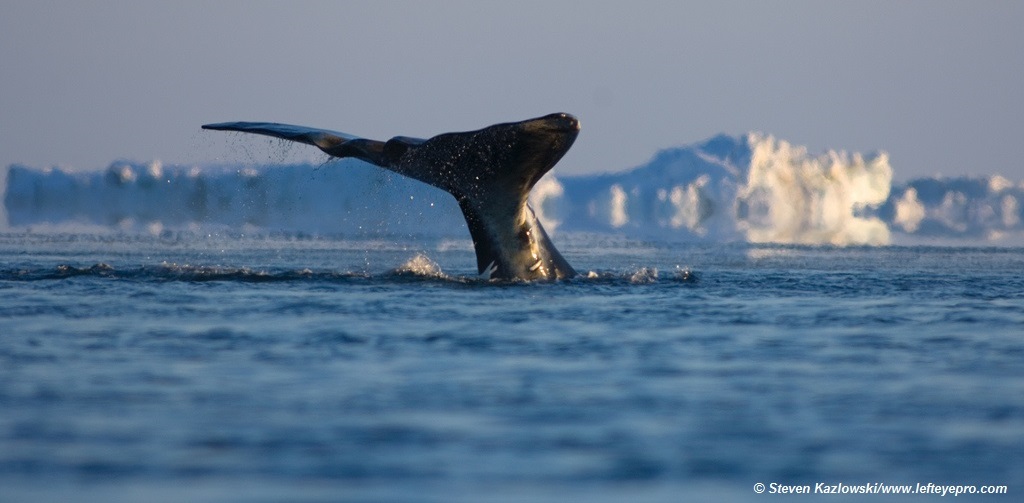Incidental Take And Our Arctic Ocean

The National Oceanic and Atmospheric Administration National Marine Fisheries Service recently issued Shell Oil an “incidental harassment authorization,” giving the company permission to harass thousands of whales and seals if it is allowed to move forward with exploratory drilling this summer. But what exactly does this mean for the marine life of the Arctic?
Simply put, granting this permit will expose Arctic marine mammals – including more than 1,000 bowhead whales (an endangered species), more than 1,600 beluga whales and more than 25,000 ringed seals (listed as threatened) – to damaging acoustic activity from actions including exploratory drilling, seismic testing and icebreaking. Seismic testing alone can cause temporary and permanent hearing loss, abandonment of habitat, disruption of mating and feeding, beach strandings and even death. Whales in particular need their hearing to survive, as it is critical for mothers and their calves to call out to each other as they migrate. Sadly, the simple truth might be that a deaf whale is a dead whale.
And let’s not forget – casting a long shadow over all of this is a U.S. Department of the Interior estimate that there is a 75 percent chance of one or more major oil spills occurring if drilling and production move forward in the Chukchi Sea.
Once it reaches the Arctic, Shell will be required to monitor areas where loud activities will be taking place, and the company has argued that the animals will just avoid these areas and the sound won’t be a problem. That’s an extremely weak justification, however, especially when considering that avoiding historic breeding and feeding grounds could lower the number of whale calves being born, and how successful they are in the wild.
In short – just because Shell’s Arctic fleet isn’t physically running the whales down doesn’t mean it won’t be doing extensive damage. And Shell already doesn’t have a stellar track record in the Arctic. In 2012, a series of mishaps included a fire aboard the drillship Noble Discoverer, the grounding of the drill rig Kulluk, and numerous safety and environmental violations resulting in Noble Drilling LLC, the operator of the Discoverer and the Kulluk, pleading guilty to eight felony charges and being hit with $12.2 million in fines.
For a full timeline of Shell’s history in the arctic, please see our updated timeline of Shell’s Arctic mishaps.
Shell’s drilling in the Arctic this summer is not a foregone conclusion. There are still several permits that they need to secure, including a similar harassment privilege from the U.S. Fish and Wildlife Service that deals with polar bears and walrus. There is still time to tell President Obama to put an end to this Arctic madness, and stop Shell in its tracks.
